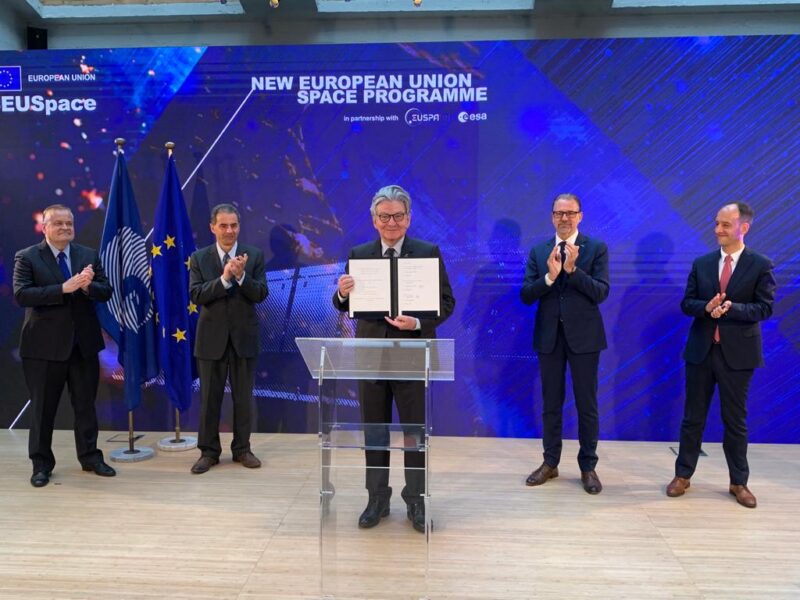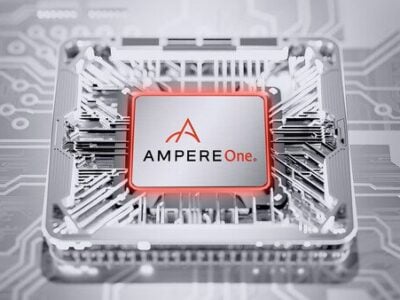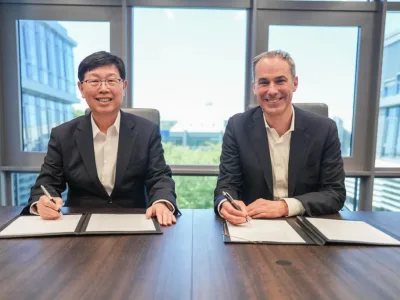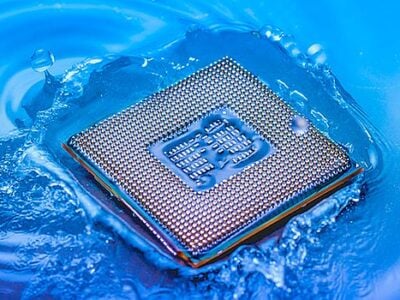
EU launches its €13bn integrated space programme
EU commissioner Thierry Breton has launched the region’s integrated programme for developing space technologies with a call to move faster.
“This new integrated programme, will be the instrument to deliver on our space ambition in Europe,” he said. “Europe has all it takes to continue being a global space power. We have talents, the industrial capacity, the technological leadership. We have the experience of ambitious space missions and world-class programmes like Copernicus and Galileo. We can rely on the excellence and expertise of our space agency, ESA. We are at the centre of among the best space based scientific projects, such as on gravitational waves,” he said.
“Yet, space is going through massive transformation and rapid industrialisation, all around the world. For Europe to maintain its leadership, we must rethink the way we do space in Europe. We must adapt to fast developments and anticipate new ones,” he added.
The €13bn plan, first discussed in January, includes accelerating the next generation of the Galileo global positioning system.
- Europe in dramatic €13bn shake up
- €1.5bn deal to develop Galileo 2 satellites
- Memory module halts Hubble
“This is the only way to keep pace with the new reality of space business and stay ahead of the technological curve,” said Breton.
“With this new generation, Galileo will operate real technological breakthroughs with high innovative satellites and technologies such as digitally configurable antennas, inter- satellites links, new atomic clocks technologies, use of full electric propulsion systems.”
“I want to be clear: we cannot proceed with business as usual. Defining the future of Copernicus will be one of my priority for the months to come,” he said.
The second element is connectivity with four objectives. The first is to provide high speed broadband to everyone in Europe, but also potential in Africa, which will require a competitor to StarLink from Space X in the US and the UK’s OneWeb, and avoid depending on US or Russian suppliers
But the strategy will also include quantum security era, with protection against cyber- and hybrid threats, ensuring quantum encrypted communication.
“This project is envisaged as a multi-orbital initiative, combining the LEO infrastructures with GEO and MEO capabilities; and, very importantly, it needs to put Europe ahead by integrating cutting-edge technology and security features. This will be our differentiating factor,” said Breton.
The EU is still designing the potential architecture, building on the existing GovSatCom initiative planned in the Space Programme as well as the EuroQCI quantum security programme.
Another element of the strategy is an autonomous European Space Traffic Management system.
With more than a million space debris in orbit, and thousands of satellites to be launched in the years to come, space is more and more crowded, with increasing risks of collisions.
“Europe must be able to monitor space by its own. This is a question of strategic autonomy, both for the security of our critical infrastructure, but also for Europe’s access to space. We will build on the current Space Situational and Tracking system and its anti-collision system serving today more than European 220 satellites,” he said.
The fourth element of the strategy is the launcher.
“There is no space policy without autonomous access to space,” said Breton. “Europe needs to have a forward-looking strategy, going beyond national interests.”
“For the first time, we will be able to use the EU budget to support the European launcher industry in the full chain: from earliest research on new propulsion technologies to long-term contracts for the launches of our EU satellites.
“It is not the time for complacency. Yes, we have fantastic EU launchers, competitive of the global stage. But the standards for launchers are currently being redefined outside of Europe. I believe we need a more offensive and aggressive strategy.
“Europe cannot afford to be divided on these strategic questions. We need to be able to go beyond the national interests, break the taboos of this debate, seat and discuss all together and define a new set up for Europe to design a true and genuine European strategy for launchers. This is why I proposed an Alliance for Launchers to have a shared roadmap for the next generation of EU launchers.
The initiative will involve all EU member states, national space agencies, ESA and industry to explore new ways of access to space, allowing Europe to have the full range of launchers from micro and small lifts to medium and heavy lifts.
For the first time this includes funding the development of a launcher rocket, which previously was handled by ArianeSpace. The latest version, Ariane6, has been delayed to the middle of next year. Ariane 62 will be able to launch payloads of approximately 4500 kg into a geostationary orbit or 10 300 kg into low Earth orbit, while the four booster version Ariane 64 can launch payloads of 20 600 kg into low Earth orbit. The European Space Agency is working with an industrial network of more than 600 companies in 13 European countries, including 350 small- and medium-sized enterprises, led by prime contractor ArianeGroup, but the slow pace has been an issue.
The strategy also includes alternative business models and funding schemes, with Breton soon to launch a €1bn European Space Fund to boost start-ups and space innovation with the EU as a major customer.
“I want also to organise a true European space incubators network [and] I am also determined to enable the EU to act as a major anchor customer or first client (first contract approach) through an innovative procurement strategy, including for the upcoming connectivity project.”
But he warns against too much negotiation.
“In Europe we spend too much time to discuss who does what instead of doing,” he said. “With the EU Space Programme, we have the best launching pad towards our ambition in space. We need to be innovative and go fast, as the global space race is not going to slow down. We have no time to lose.”
Related space articles
- Scheme gives LEO satellites positioning service
- UK aims to be first European country for launches
- UK launches £15m technology programme
- OneWeb buys US secure comms company
- Oneweb leads £32m beam hopping satellite project
- OneWeb challenge for next generation LEO satellite designs
Other articles on eeNews Europe
- Intel to offer RISC-V core in 7nm foundry
- Chip shortage hits payment cards
- Intel eyes Bavaria for wafer fab
- Samsung Foundry tapes out 3nm GAA chip
- Siemens looks to digital twin, IoT to drive growth
- Qualcomm pushes 4nm for 5G OpenRAN small cell platform
 If you enjoyed this article, you will like the following ones: don't miss them by subscribing to :
eeNews on Google News
If you enjoyed this article, you will like the following ones: don't miss them by subscribing to :
eeNews on Google News



